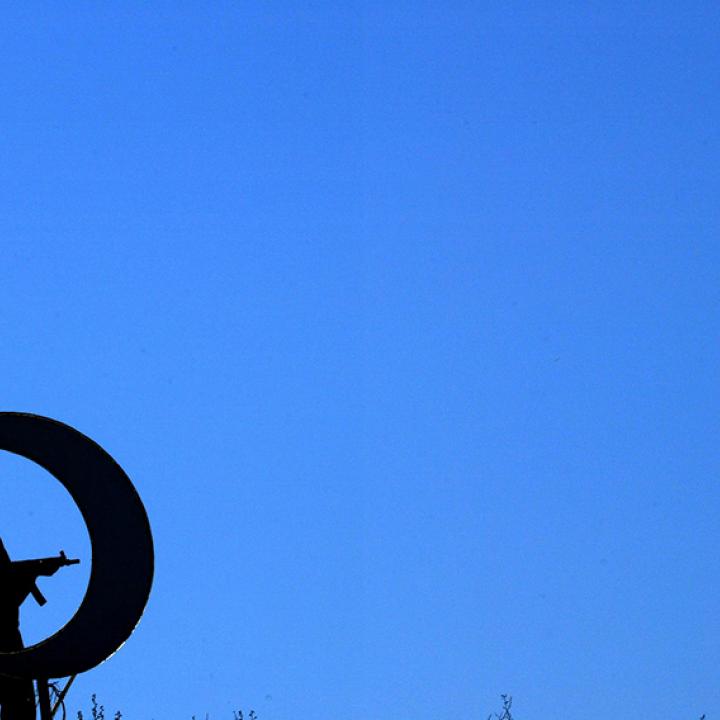

Ankara's efforts to become a regional power player have backfired. It's time to renew old partnerships instead.
The ongoing NATO summit in Wales this week is a golden opportunity for new Turkish Prime Minister Ahmet Davutoglu. After a period when Ankara seemed to think Turkey's future lay solely in the Middle East, recent events have brought home the importance of the country's European alliances. In Wales, Mr. Davutoglu can start repairing those relationships, which have suffered from neglect.
Since taking power in 2002, the Justice and Development Party, or AKP, government has transformed Turkey's economy, making the country a majority-middle-class society. Turks are living better now than they ever have in modern history. Accompanying the unprecedented prosperity was a sense of hubris so powerful that former Prime Minister and now President Recep Tayyip Erdogan and Mr. Davutoglu, adviser to Mr. Erdogan and then foreign minister until the past week, thought they could singlehandedly reshape the Middle East.
So the AKP abandoned Turkey's founding ethos, Kemalism. The country's first president, Mustafa Kemal Ataturk saw Turkey as a European country. His successors believed that as a member of every pan-European and trans-Atlantic institution, from NATO to the OECD, Turkey's fate lay in Europe and the West. The Turks related to the Middle East as Argentines relate to Latin America. Just as the Argentines see themselves as Europeans who happen to live in Latin America, many Turks thought of themselves as Europeans who happen to live next to the Middle East.
As Turkey's chief foreign-policy strategist since 2002, Mr. Davutoglu has challenged this paradigm by hinting that Turkey should be the "Brazil of the Middle East," a dominant regional economy capable of steering the course of events. Turkey didn't need Western allies in the Middle East, under the new thinking.
The shift became manifest in Ankara's involvement in the Syrian war, where Turkey opened its 510-mile long border to support the rebels against the regime of Bashar Assad. Turkey also delved into Iraqi politics, supporting the Kurds against the central government in Baghdad. And Ankara threw its lot behind Muslim Brotherhood-affiliated parties in Libya, Syria and Egypt. All this was done in the hope of turning these assets into Ankara's proxies of influence in the Middle East.
This gambit has produced catastrophic results. For the first time in its history, Turkey is engaged in the civil war of a neighboring country in Syria, with no end in sight. Ankara's policy of supporting the Kurds in Iraq has also backfired, as Baghdad has blocked Turkish trade ties with the rest of the country. Thus, and here is another first, Turkey has lost all access to the Middle East. Its borders with Syria and Iraq are closed.
In Egypt, Turkey is unwanted because of its support for the Muslim Brotherhood. Egyptians fault Ankara for not building bridges with the broader society. And in Libya and Syria, the Turkish-supported Muslim Brotherhood has been sidelined by radicals. The Saudis, who work tirelessly against the Muslim Brotherhood across the region, dislike Turkey for its unyielding support to the group.
The long-standing "no-conflict" rule in Turco-Persian ties has come undone under the AKP government. Turkey and Iran are locked in a vicious proxy war, with Tehran supporting the Damascus regime and the Baghdad government, undermining Ankara's core interests in Syria and Iraq. Except for pro-Muslim Brotherhood Qatar and the Iraqi Kurds, Ankara has no allies, proxies or friends in the Middle East.
Turkey has also lost Israel, an important democratic ally before 2002, by cultivating closer ties to Hamas. The AKP's supporters said that a tougher stance toward Israel was a necessary evil to curry favor with the Arabs. But today, neither the Arabs nor the Israelis are friends.
This couldn't come at a more dangerous time, as Turkey now borders a radical and dangerous Islamic State in Iraq and Syria that shares al Qaeda's ideology and the Taliban's statecraft and grassroots skills. At least a few of these jihadists have crossed into Syria through Turkey.
These brewing foreign-policy crises could soon turn into domestic political challenges for Messrs. Davutoglu and Erdogan and the AKP. Turkey's economic success is the product of its stability in an unstable region. The record-breaking amounts of foreign direct investment into the country reach $50 billion annually, fueling Turkey's growth and Mr. Davutoglu's electoral success. As the ISIS threat to Turkey grows, international investments will dry up, and his chances in the 2015 parliamentary elections will not be as auspicious.
Yet although Ankara's entanglements in the Middle East haven't been successful to date, it is too late to return to the Kemalist model of ignoring the Middle East entirely. Turkey is a part of the Middle East reality and all its turmoil. At the NATO summit and beyond, Mr. Davutoglu would be prudent to take a cue from the Kemalist playbook and redevelop a propitious cooperation with Turkey's erstwhile allies, NATO, the U.S. and the Europeans to tackle the ISIS threat and other Middle East quandaries together.
Wall Street Journal



